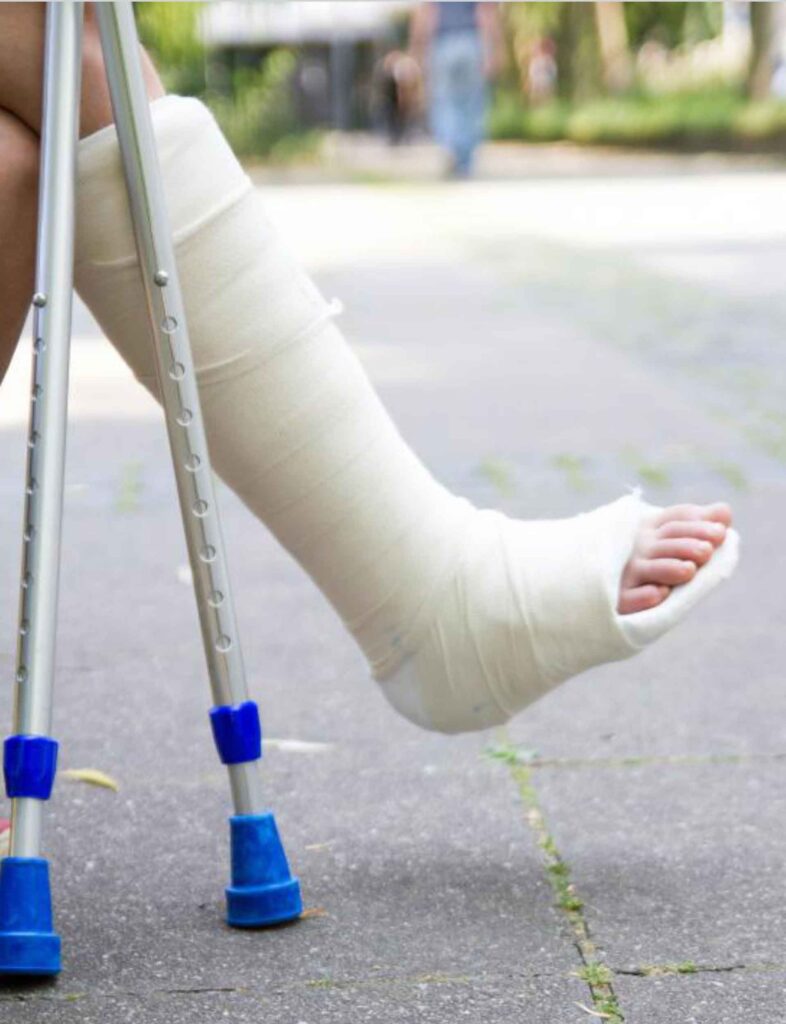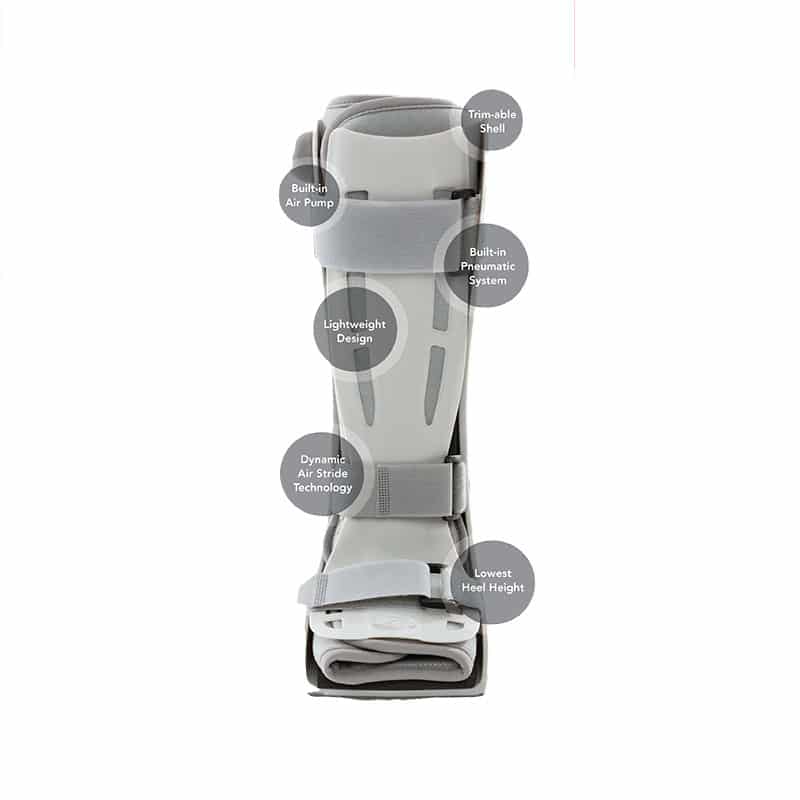In the realm of orthopedic recovery, innovation plays a pivotal role in enhancing patient outcomes and overall quality of life. The introduction of the Genesis Walker stands as a testament to such advancements, offering a sophisticated alternative to the traditional Plaster of Paris (POP) cast. This blog delves into the transformative features of the Genesis Walker, highlighting its distinct advantages and how it reshapes the approach to injury rehabilitation.
The Traditional Route: POP Casts

For decades, POP casts have been the cornerstone of treatment for fractures and other orthopedic injuries. Composed of a cotton bandage combined with plaster, these casts are known for their rigidity, providing strong immobilization of the affected limb. However, this traditional method comes with its share of limitations:
- Weight and Bulk: POP casts are relatively heavy and cumbersome, hindering daily activities and mobility.
- Lack of Hygiene: Being non-removable, they pose challenges in maintaining cleanliness, leading to skin issues and discomfort.
- No Adjustability: Once a POP cast is set, it cannot be adjusted for swelling, potentially leading to circulation problems.
The Innovative Solution: Genesis Walker

The Genesis Walker emerges as a groundbreaking solution, engineered with the patient’s comfort and recovery in mind. This device represents a leap in orthopedic care, equipped with features that address the constraints of traditional casts:
- Adjustable Support: Unlike the rigid structure of POP casts, the Genesis Walker offers adjustable levels of support. This adaptability is crucial for accommodating swelling and enhancing comfort throughout the healing process.
- Enhanced Mobility: Designed with a durable, yet lightweight frame, the Genesis Walker enables patients to maintain a degree of mobility. Its structure allows for protected weight-bearing, which is often part of rehabilitation protocols.
- Improved Hygiene and Comfort: The removable design of the Genesis Walker not only facilitates skin care and hygiene but also allows for periodic inspection of the injury site by healthcare providers.
- Breathable Material: The use of breathable fabrics reduces the risk of skin irritation and discomfort, ensuring a more pleasant recovery experience.
Comparing the Pathways to Recovery

When we juxtapose the Genesis Walker with traditional POP casts, the differences are stark, not only in terms of physical characteristics but also in the impact on the patient’s recovery journey.
- Rehabilitation Efficiency: The Genesis Walker’s support for gradual weight-bearing promotes faster muscle recovery and joint mobility, a stark contrast to the muscle atrophy often seen with prolonged use of POP casts.
- Patient Autonomy and Quality of Life: The ease of use and adjustability of the Genesis Walker empower patients, giving them an active role in their recovery process. This sense of autonomy is significantly absent in the one-size-fits-all approach of POP casts.
- Versatility and Customization: The ability to adjust the Genesis Walker to fit the swelling patterns and recovery stages of an injury offers a personalized recovery plan, diverging from the static nature of POP casts.
Embracing the Future of Orthopedic Recovery
The Genesis Walker not only provides an alternative to traditional POP casts but also symbolizes a broader shift towards patient-centered innovation in orthopedic care. By prioritizing mobility, comfort, and hygiene, this device aligns with the contemporary emphasis on enhancing the patient experience and outcome.
In conclusion, as the landscape of orthopedic rehabilitation evolves, tools like the Genesis Walker play a pivotal role in defining a new standard of care, one that respects the complexities of the human body and the resilience of the human spirit. The journey from immobilization to mobility, encapsulated in the transition from POP casts to the Genesis Walker, marks a significant stride towards a future where recovery is not just about healing bones but also about uplifting lives.